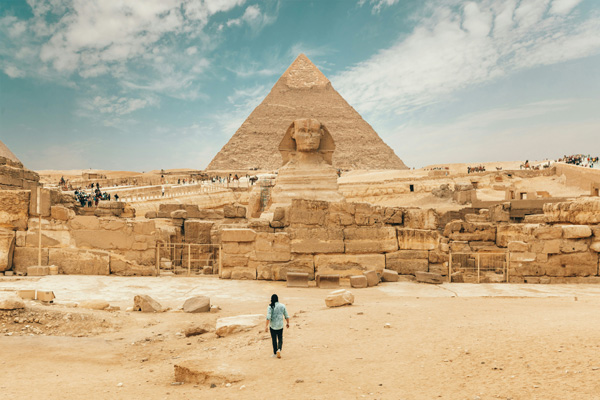Egypt’s inflation soars due to the Israel-Hamas conflict

[Photo Credit to Unsplash]
Egypt’s inflation rate has been increasing rapidly, hitting 35.7% in February due to the Israel-Hamas conflict.
Known for its pyramids, museums, resorts, and monuments, tourism has been a major source of national income (GDP) for Egypt.
However, the conflict’s proximity to Egypt’s Sinai peninsula has led to a sharp decline in tourist numbers in the country.
People predict that the damage to Egyptian tourism will deteriorate as the Israel-Hamas war persists.
Not only the tourism sector, but empty stores and inflated market prices are causing hardships for citizens, especially with the onset of Ramadan.
Food prices surged by 15.9% in February, and market prices have doubled since last year, leading to a decrease in sales with merchants complaining about the problem.
For instance, the sugar market has faced a price surge as there has been a shortage of sugar in Egypt.
Even the traditional Ramadan lanterns, used to decorate houses during the festival period, have seen a price hike due to increased gold prices.
This problem has caused difficulties for lantern merchants as fanous lanterns are symbolic of the religious festival.
The main factors contributing to the inflation include the Russia-Ukraine war leading to increased grain prices, and Houthi rebels’ attacks decreasing the Suez Canal’s water transport capacity.
Since last November, Egypt has been dealing with the economic impact of Houthi missile and drone attacks against Israel-linked commercial vessels in the Red Sea.
The Suez Canal is beneficial to Egypt’s economy because it is the shortest trade route connecting Asia, Europe, and Africa.
Many shipping companies had to reroute their vessels around the Cape of Good Hope in South Africa instead of passing through the Suez Canal.
Hence, the number of cargo ships passing through the Suez Canal has halved since the attacks started, damaging Egypt’s GDP significantly.
Additionally, Egypt’s economy has suffered greatly since last October, with Israel temporarily halting extractions from the Tamar gas field.
Egypt is home to the Eastern Mediterranean's only two gas liquefaction facilities; Israel supplies gas to Egypt, which converts it into Liquefied Natural Gas (LNG) and exports it to other markets including Europe.
Egypt's gas re-exports plummeted by more than 50% in 2023, indicating its economic dependence on Israel.
As a result of the high inflation rate in Egypt, citizens held resentment towards the government.
In response to the inflation, the government announced measures to decrease the inflation rate to a one-digit number by raising the interest rate to 6% and adjusting the exchange rate of the market.
However, this led to a rapid decrease of 60% in the currency value of the Egyptian pound against the US dollar.
Consequently, Egyptians have started investing more in silver and gold, buying these raw materials as a replacement for US dollars.
Since Egyptians believe that their currency’s value may fluctuate, the demand for gold in Egypt has seen a rapid increase in recent years.
This year, Egyptians experienced a difficult Ramadan celebration amidst the ongoing economic crisis, hoping for the country to navigate this record-high inflation smoothly.

- Kate Kim / Grade 10
- Gyeonggi Suwon International School

![THE HERALD STUDENT REPORTERS [US]](/assets/images/logo_student_us.png)
![THE HERALD STUDENT REPORTERS [Canada]](/assets/images/logo_student_ca.png)
